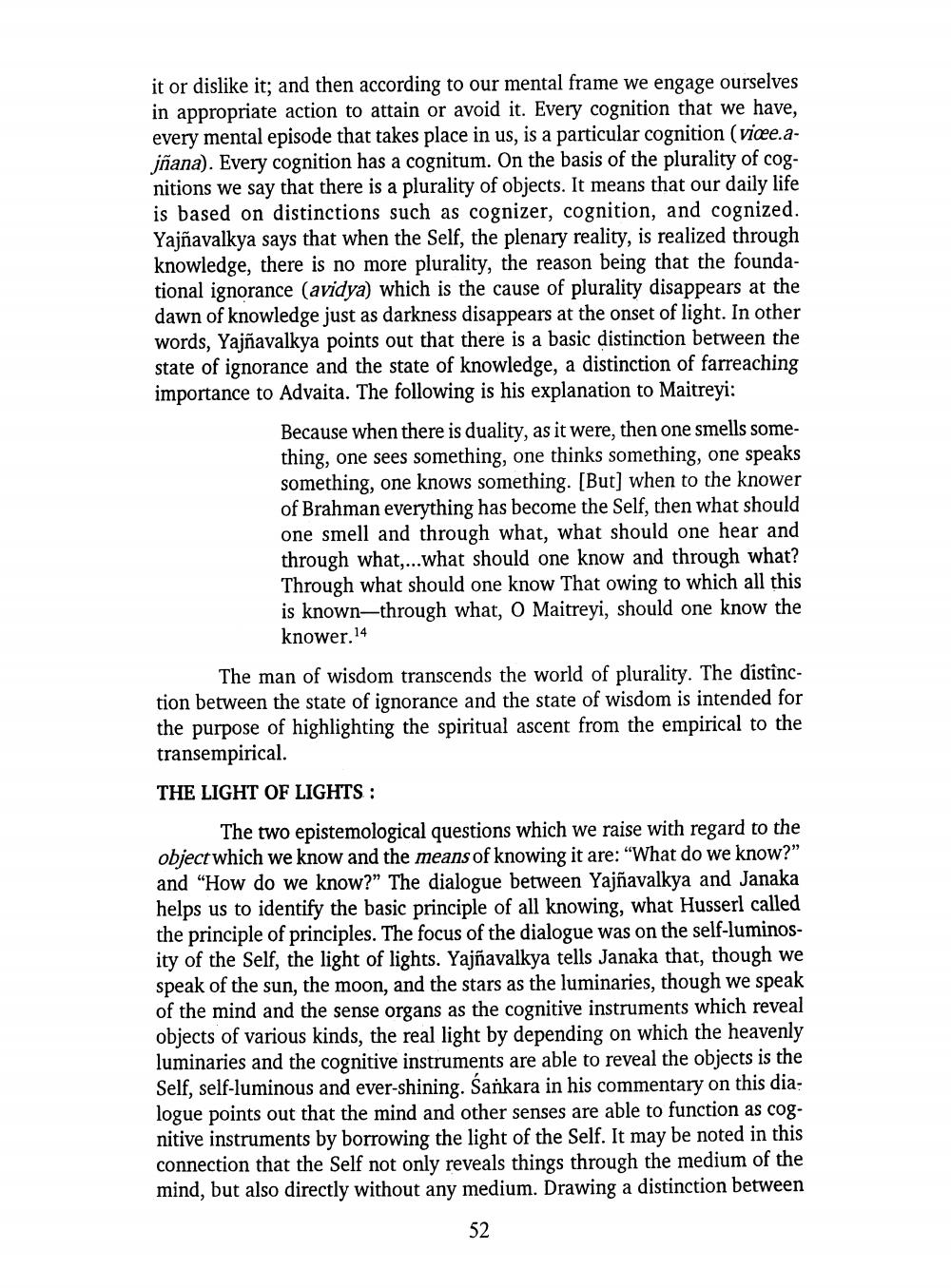________________
it or dislike it; and then according to our mental frame we engage ourselves in appropriate action to attain or avoid it. Every cognition that we have, every mental episode that takes place in us, is a particular cognition (vice.ajñana). Every cognition has a cognitum. On the basis of the plurality of cognitions we say that there is a plurality of objects. It means that our daily life is based on distinctions such as cognizer, cognition, and cognized. Yajñavalkya says that when the Self, the plenary reality, is realized through knowledge, there is no more plurality, the reason being that the foundational ignorance (avidya) which is the cause of plurality disappears at the dawn of knowledge just as darkness disappears at the onset of light. In other words, Yajñavalkya points out that there is a basic distinction between the state of ignorance and the state of knowledge, a distinction of farreaching importance to Advaita. The following is his explanation to Maitreyi:
Because when there is duality, as it were, then one smells something, one sees something, one thinks something, one speaks something, one knows something. [But] when to the knower of Brahman everything has become the Self, then what should one smell and through what, what should one hear and through what,...what should one know and through what? Through what should one know That owing to which all this is known-through what, O Maitreyi, should one know the knower.14
The man of wisdom transcends the world of plurality. The distinction between the state of ignorance and the state of wisdom is intended for the purpose of highlighting the spiritual ascent from the empirical to the transempirical THE LIGHT OF LIGHTS :
The two epistemological questions which we raise with regard to the object which we know and the means of knowing it are: "What do we know?” and “How do we know?" The dialogue between Yajñavalkya and Janaka helps us to identify the basic principle of all knowing, what Husserl called the principle of principles. The focus of the dialogue was on the self-luminosity of the Self, the light of lights. Yajñavalkya tells Janaka that, though we speak of the sun, the moon, and the stars as the luminaries, though we speak of the mind and the sense organs as the cognitive instruments which reveal objects of various kinds, the real light by depending on which the heavenly luminaries and the cognitive instruments are able to reveal the objects is the Self, self-luminous and ever-shining. Sankara in his commentary on this dia. logue points out that the mind and other senses are able to function as cognitive instruments by borrowing the light of the Self. It may be noted in this connection that the Self not only reveals things through the medium of the mind, but also directly without any medium. Drawing a distinction between
52




